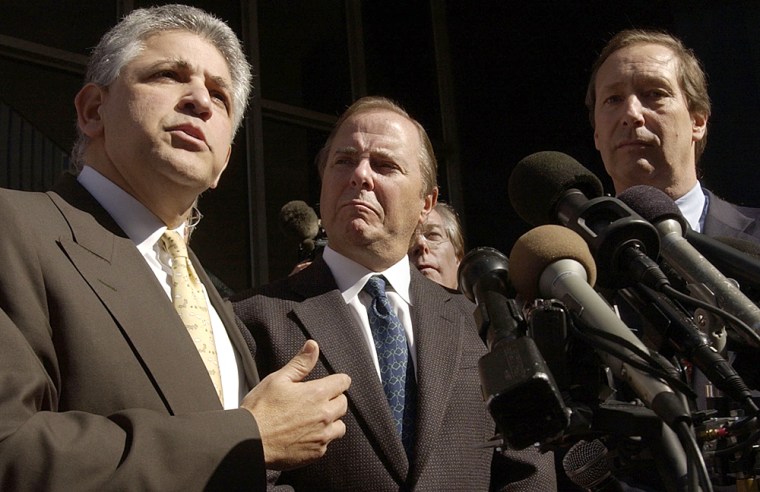Lawyers for Jeffrey Skilling say the former Enron Corp. CEO should not have to pay $2 million more bond after a drunken scuffle in New York City last month, arguing that prosecutors have distorted what happened.
The federal prosecutors went out of their way to misrepresent events and place "full culpability and responsibility" on Skilling for the April 9 incident, Skilling's attorneys said in court documents filed Wednesday.
Prosecutors say Skilling scuffled with bar patrons during a night of heavy drinking in Manhattan. They said the incident violated his $5 million bond agreement because he failed to immediately report his contact with police to authorities.
Skilling attorney Daniel Petrocelli has said that while Skilling regrets the episode, it did not happen as reported by prosecutors.
Skilling has been free on the original bond since his arraignment in February on charges of fraud, conspiracy and insider trading. He has pleaded innocent to the charges.
Prosecutors asked a judge last week to order Skilling to pay the additional $2 million bond. The filing said Skilling had a blood alcohol level of .019 — more than twice the state's legal driving limit of 0.08 — after police took him to a hospital.
Defense lawyers said in Wednesday's filing that prosecutors should filed the results of Skilling's blood test under seal instead of releasing them to the media because they could prejudice the jury for his trial.
Prosecutors countered that the public had a right to know the blood-test results.
